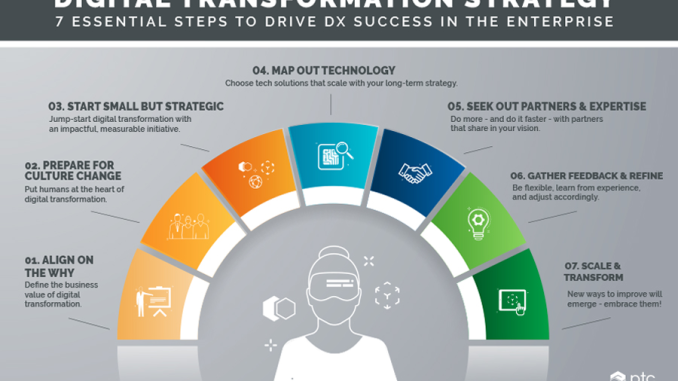
In today's fast-paced digital landscape, businesses must adapt and embrace new technologies to stay competitive. Digital transformation is the process of incorporating digital technologies into various aspects of a business to improve its overall efficiency, customer experience, and profitability. Here are some essential strategies that businesses can adopt to successfully navigate their digital transformation journey.
1. Define Clear Goals and Objectives
Before embarking on a digital transformation initiative, it is essential to clearly define your business's goals and objectives. Determine what you aim to achieve through digital transformation and outline measurable metrics to track progress. Whether it's enhancing operational efficiency, improving customer satisfaction, or entering new markets, having a clear vision will help guide your transformation efforts.
2. Conduct a Comprehensive Digital Assessment
To identify the areas of your business that would benefit most from digital transformation, conduct a comprehensive digital assessment. Evaluate your current technologies, systems, and processes, and identify any gaps that need to be addressed. This assessment will provide a roadmap for your digital transformation journey by highlighting areas that require immediate attention and potential areas for future enhancement.
3. Empower your Workforce with Digital Skills
Digital transformation is not just about implementing new technologies – it's also about empowering your workforce to leverage these technologies effectively. Provide digital training programs and upskill your employees to equip them with the necessary skills for the digital era. Foster a culture of continuous learning and encourage employees to embrace new technologies and innovative ways of working.
4. Embrace Cloud Computing
Cloud computing has revolutionized the way businesses operate by providing scalable and cost-effective computing resources. Embracing cloud technologies allows businesses to streamline their operations, enhance collaboration, and store and access data securely. Cloud solutions also offer agility and flexibility, enabling businesses to quickly adapt to changing market dynamics and scale their operations as needed.
5. Enhance Customer Experience
Central to successful digital transformation is enhancing the customer experience. Leverage data analytics and customer insights to understand your target audience better and customize your products and services to meet their needs. Implementing personalized marketing initiatives, optimizing your website for mobile devices, and providing seamless omnichannel experiences are crucial for building long-lasting customer relationships in the digital age.
6. Emphasize Data Analytics and AI
Data is the new currency in the digital economy, and businesses must harness its power to gain a competitive advantage. Implement robust data analytics tools and processes to gain valuable insights into various aspects of your business, such as customer behavior, market trends, and operational efficiency. Additionally, leverage artificial intelligence (AI) technologies to automate tasks, improve decision-making processes, and discover new business opportunities.
7. Foster Collaboration and Agility
A successful digital transformation requires collaboration across different teams and departments within an organization. Break down silos and foster cross-functional collaboration to ensure a smooth transition. Additionally, adopt an agile approach to change management, embracing flexibility and adaptability to respond to evolving market demands and technological advancements.
8. Prioritize Cybersecurity
As businesses become increasingly digital, cybersecurity becomes a critical concern. Protect your sensitive data and network infrastructure by implementing robust cybersecurity measures. Stay updated with the latest security protocols and educate your employees about best practices to ensure data privacy and prevent cyber threats.
9. Continuously Evaluate and Evolve
Digital transformation is an ongoing process, and businesses must continuously evaluate and evolve their strategies. Regularly assess the impact of digital initiatives on your business and make necessary adjustments to ensure alignment with your goals. Stay informed about emerging technologies and market trends to identify new opportunities for growth and innovation.
Conclusion
Digital transformation is no longer a choice but a necessity for businesses that want to thrive in the digital age. By defining clear goals, conducting thorough assessments, empowering employees, embracing cloud technologies, enhancing customer experience, leveraging data analytics and AI, fostering collaboration and agility, prioritizing cybersecurity, and continuously evaluating and evolving, businesses can successfully navigate their digital transformation journey and stay ahead of the competition.
